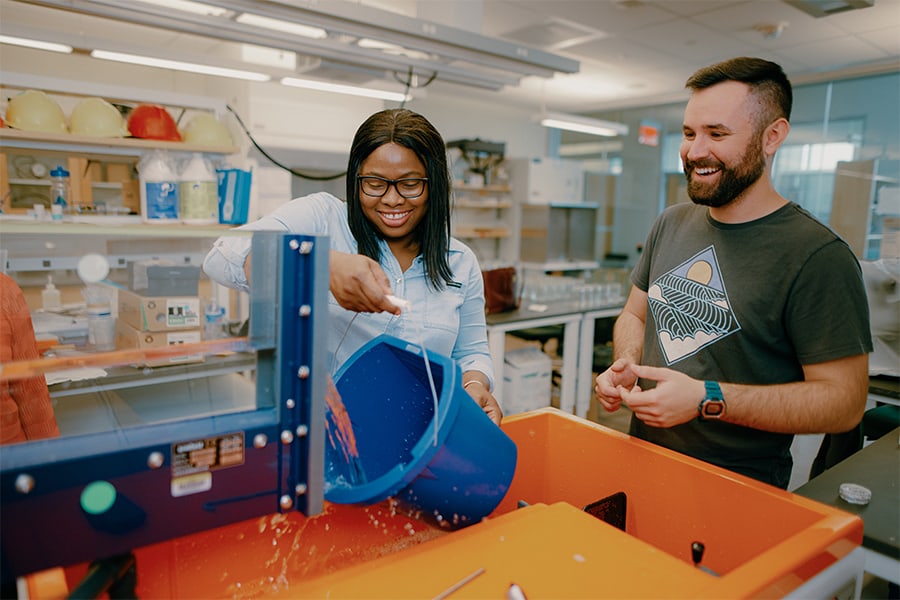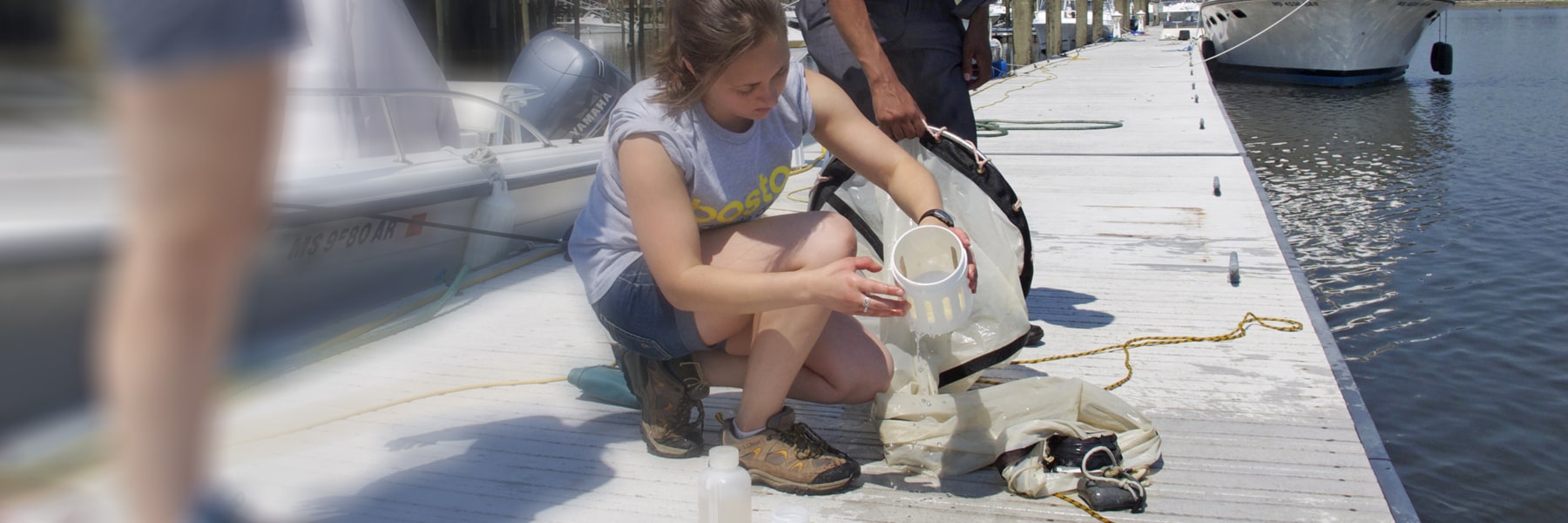How to Apply
Applicants must meet general graduate admission requirements in addition to the following program-specific requirements:
Test Scores: GRE
Letters of Recommendation: 2
Other: Faculty advisor commitment, 2.75 undergraduate GPA
Deadlines & Cost
Deadlines: February 1 for fall, November 1 for spring
Application Fee: The nonrefundable application fee is $75. UMass Boston alumni and current students that plan to complete degree requirements prior to graduate enrollment can submit the application without paying the application fee.
Estimate Your Program Cost: Get a feel for your expected program costs using the Graduate Program Cost Calculator.
Program Cost Information: For more detailed information on costs, please visit the Bursar's website.
Curriculum
Course Requirements
Core Courses (9 to 10 Credits): Complete three from below.
- ENVSCI 630 - Biological Oceanography 3 Credit(s)
- ENVSCI 640 - The Chemistry of Natural Waters 3 Credit(s)
or - ENVSCI 641 - The Geochemistry of a Habitable Planet 3 Credit(s)
- and ENVSCI 642 - Laboratory for the Geochemistry of a Habitable Planet 1 Credit(s)
- ENVSCI 650 - Physical Oceanography 3 Credit(s)
School for the Environment Seminar (2 Credits): All MS students must attend seminar each week throughout their enrollment in the program but will receive no more than 2 credits for seminar.
- ENVSCI 791 - Seminar in Environmental Sciences 1 Credit(s)
For more information on curriculum, including course descriptions and degree requirements, visit the Academic Catalog.
Learning Outcomes
Upon completion of the Marine Science and Technology, MS:
- Students will be able to apply scientific ways of knowing and design appropriate experiments to answer environmental science questions.
- Students will understand the contributions of laboratory, field, and survey data collection and analysis for approaching environmental science problems.
- Students will be able to analyze and critique environmental questions across multiple natural and social science perspectives and research approaches.
- Students will demonstrate analytical and quantitative proficiencies to analyze environmental and/or social science data.
- Students will understand the system interactions and feedback between human activities and social institutions and the natural environment.
- Students will be experienced in communicating their learnings both in writing, visually, and orally, and for specific and general audiences.
- Students will have gained confidence in being an expert in a their field by knowing the relevant literature, having conducted original and significant research, and presented this research publicly. (and have had this work reviewed by experts in their field (at least the committee or readers).
Graduation Criteria
Program Requirements
Complete 30 credits from at least ten courses including three core courses, one School for the Environment seminar, one thesis course, and 12 to 13 credits of electives.
Capstone: Complete a master’s thesis.
Students may apply for transfer to the Marine Science and Technology (PhD) program upon completion of core course requirements.
Minimum grade: No courses with grade below B can be applied to the program. Students who earn B- in two courses will be considered no longer in good standing and may be dismissed from the program. Students who receive a grade below C in any graduate course will be dismissed from the program.
Grading basis: Courses must be taken graded unless the course is only offered on a satisfactory/unsatisfactory basis.
GPA: A minimum GPA of 3.0 is required from all courses applied toward the program.
Residency: Graduate course credits earned at another institution, as a non-degree student, or in another department may only be applied to the program with approval from the dissertation committee and graduate program director.
Course level: No more than one course taken at UMass Boston at the 300/400-level may be applied toward the program with approval of the thesis/project advisor and graduate program director.
Statute of limitations: Six years.
Contact
Graduate Program Director Michael Tlusty
michael.tlusty [at] umb.edu
(617) 287-5285

School for the Environment
Learn more about the faculty, research, and programs that make up our School for the Environment.
Explore Now